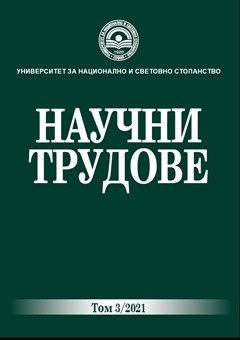Students’ Social Capital, Social Space, and Civic Life in Sofia
Автор: Lucien Peters
Резюме
After the 1989 change of economic and political regimes in Bulgaria, sustained citizen involvement in civic life has declined over the past decades, save for occasional street protests. This is especially noticeable for students of the Millennial and subsequent generation. While Sofia university students participate in street protests, overall youth apathy is reflected in un-sustained involvement in civic life. Sofia students and recent university graduates appear to live in largely unconnected social ‘silos’, composed of close friends and family on the one hand, and other friends, students or work colleagues, on the other hand. These silos are anchored in specific urban neighbourhoods and in students’ hometowns. In terms of social capital, students’ social circles comprise stable bonding capital with a high degree of trust, and less stable bridging capital with limited trust, including temporary alliances with other social groups. Social interaction among students has been observed for periods between two and seven years. Informants maintain stable bonding capital beyond their university years, while their bridging capital is occasionally re-composed for specific purposes. This points towards the existence of a flexible, adaptable social capital category, which I call “Flex Capital”. Sustained student involvement in civic life appears to be hindered by their unstable bridging capital; a lack of leadership within social groups, and by the narrowly-scoped spatial setting of social interaction.
JEL: Y40, Z13

